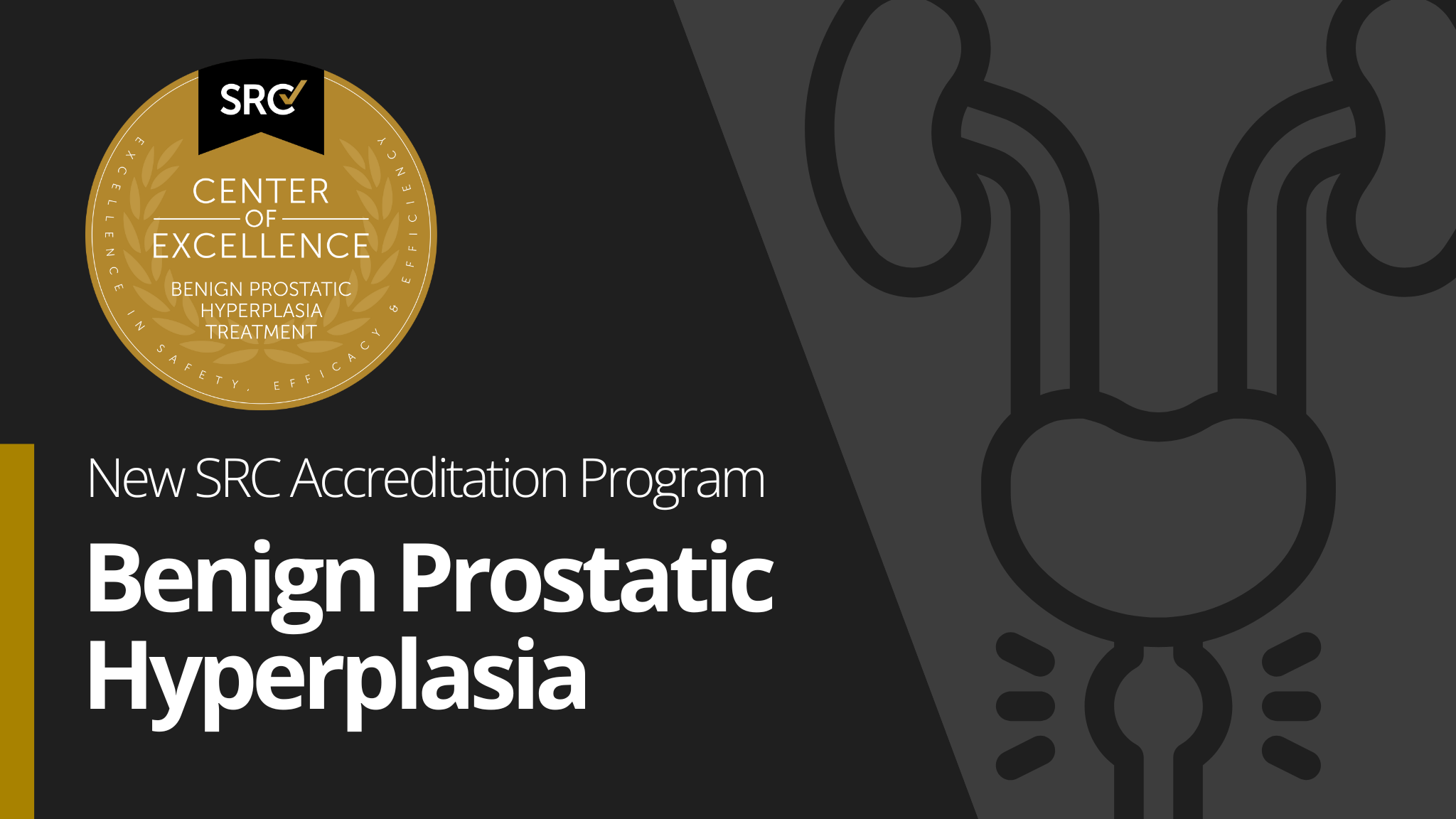
Expanding Excellence Recognition: Launching Benign Prostatic Hyperplasia Program
SRC is dedicated to expanding its accreditation programs that recognize excellence in clinical safety, ensuring the evolving needs of patients are met. Recently, SRC launched its new Benign Prostatic Hyperplasia program for healthcare providers excelling in this specialized treatment area.
What is Benign Prostatic Hyperplasia (BPH)?
BPH, also known as enlarged prostate, is a common condition in men associated with aging. Although benign, this growth can cause discomfort and urinary issues.
What are the symptoms of BPH?
The symptoms of BPH can resemble those of other urinary and prostate conditions. Individuals with BPH may experience:
- Frequent urination
- Weak urine stream, or one that starts and stops
- Inability to fully empty the bladder
- Incontinence
Less common symptoms include:
- Urinary tract infection
- Inability to urinate
- Blood in the urine
The size of the prostate does not necessarily correlate with the severity of symptoms.
What are the treatment options for BPH?
BPH can be managed through various methods, including medication, minimally invasive procedures or surgery. The optimal treatment approach depends on individual needs, considering factors such as the size of the prostate, age, overall health and symptom severity. In some cases, treatment may not be necessary as symptoms can improve on their own.
Does BPH increase the risk of prostate cancer?
BPH does not increase the risk of prostate cancer, according to research. However, since many symptoms overlap, it is crucial to consult with a doctor to determine the underlying cause. Both conditions can occur in tandem.
SRC recognizes the importance of finding a trusted provider specially qualified to treat specific conditions. We are proud to offer accreditation in Benign Prostatic Hyperplasia, providing patients with an easy way to identify healthcare providers who have been rigorously vetted by an independent patient safety organization.
SRC accreditation evaluates not only the facility where care is provided but also the individual healthcare provider delivering the care. Prioritizing long-term improvement and a culture of excellence is a core principle of SRC’s Center of Excellence programs. The BPH program helps ensure patient safety by identifying the use of advanced technologies that offer simple, quick procedures to alleviate symptoms, enhance quality of life, and potentially prevent progression to more serious conditions such as bladder stones or kidney disorders.
Ready to get your facility and providers accredited in Benign Prostatic Hyperplasia?
Download the program requirements here and schedule a call with our team here to learn more about SRC’s accreditation process.